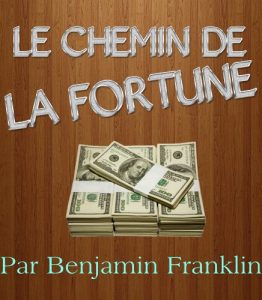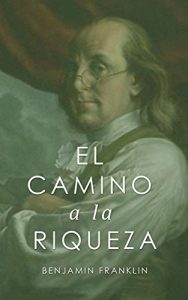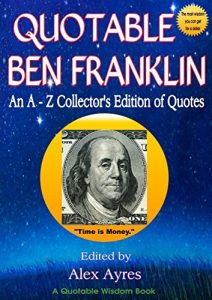The Autobiography of Benjamin Franklin is valuable chiefly because it is the veracious record of the life of a self-made man who by his own effort became both learned and great. The real subject of interest is the man who stands forth by his own revelation in the plain, unvarnished, but complaisant narrative of his deeds. The beginning was in an ordinary boyhood, in the colonial epoch, when almost all must earn their own livelihood. For many years, each phase of his life was the replica of scores of others, his contemporaries. The distinguishing characteristics of the man were discerned only when he had become great and exceptional in the esteem of the world. Then, it was apparent that a singular uniformity of aim and method had characterized him from the beginning of his career, so that each period of his activity had prepared him for the next. He passed from small affairs to great as naturally and inevitably as if, from the first, he had foreseen what was to come and had shaped his course with it in view. Nor did he ever attain an eminence which it was beyond his natural qualities to sustain. To the very end of his life, the gravest responsibilities rested upon him; the affairs intrusted to his management required the nicest judgment, the most unvarying patience and good humor, the greatest tact and skill in dealing with men; but in all he was unfailing, and so difficult was it to find among younger men one able to fill his place at the court of France, that the old man, in failing health, was obliged to remain more than two years after the signing of the treaties.
Finally, when he was old, recognizing how typical had been his situation, how common the means of his rise to greatness, he had the generosity and the ingenuous courage to write an account of his early life which included a confession of his follies and mistakes, and of the pains the effort to remedy them cost him. Thus, the Autobiography, penned with the view of instructing and aiding the young in like situation, is not the least important of the many services rendered by Benjamin Franklin in his long life. It remains, with the institutions he founded, and the national independence he aided in establishing, a benefit to posterity.
In this edition of the Autobiography, it is thought best to make no attempt to present a complete history of Franklin's life. His own writing carries the narrative forward through his active and formative years, as ordinarily reckoned, then breaks off just when he began to be absorbed in affairs of public importance, to which he gave a longer time than all the years he had spent in his own business. This later period of Franklin's life belongs, as it were, to the public, and the story of the services he rendered is told in history, where every schoolboy reads of him.
But this is not all. Franklin was more versatile than any other man of his generation. He was, indeed, a diplomatist and a statesman, but he was also a great scientist, a discoverer, an inventor, an author whose writings, after more than a century, are still read for their own sake. When Poor Richard no longer wrote to instruct or amuse his fellow countrymen, he found occasion for his ready wit in pieces designed to set in a satiric light his political enemies; or, in more gentle humor, he wrote pleasing short pieces, " bagatelles," to suit the humor of the day and pass an idle hour, but, nevertheless, full of meaning. In the selection of a few of these writings of Franklin for this edition, we have sought to give such as are illustrative of his wit, his humor, his gift of suggesting, in the form of pleasing discourse, some pregnant idea, or bit of satire, or moral truth.
Of the literary quality of these writings, and of the autobiography, it is enough to say that they fulfill, in a remarkable degree, his own requirement of excellence in composition.
Finally, when he was old, recognizing how typical had been his situation, how common the means of his rise to greatness, he had the generosity and the ingenuous courage to write an account of his early life which included a confession of his follies and mistakes, and of the pains the effort to remedy them cost him. Thus, the Autobiography, penned with the view of instructing and aiding the young in like situation, is not the least important of the many services rendered by Benjamin Franklin in his long life. It remains, with the institutions he founded, and the national independence he aided in establishing, a benefit to posterity.
In this edition of the Autobiography, it is thought best to make no attempt to present a complete history of Franklin's life. His own writing carries the narrative forward through his active and formative years, as ordinarily reckoned, then breaks off just when he began to be absorbed in affairs of public importance, to which he gave a longer time than all the years he had spent in his own business. This later period of Franklin's life belongs, as it were, to the public, and the story of the services he rendered is told in history, where every schoolboy reads of him.
But this is not all. Franklin was more versatile than any other man of his generation. He was, indeed, a diplomatist and a statesman, but he was also a great scientist, a discoverer, an inventor, an author whose writings, after more than a century, are still read for their own sake. When Poor Richard no longer wrote to instruct or amuse his fellow countrymen, he found occasion for his ready wit in pieces designed to set in a satiric light his political enemies; or, in more gentle humor, he wrote pleasing short pieces, " bagatelles," to suit the humor of the day and pass an idle hour, but, nevertheless, full of meaning. In the selection of a few of these writings of Franklin for this edition, we have sought to give such as are illustrative of his wit, his humor, his gift of suggesting, in the form of pleasing discourse, some pregnant idea, or bit of satire, or moral truth.
Of the literary quality of these writings, and of the autobiography, it is enough to say that they fulfill, in a remarkable degree, his own requirement of excellence in composition.











